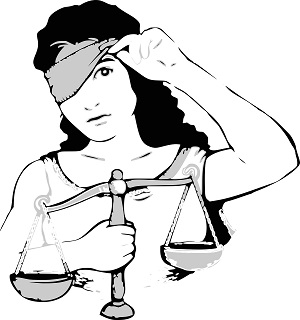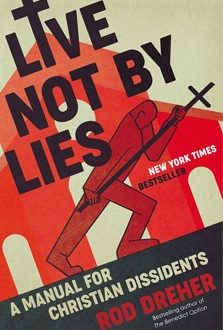Christina Hoff Sommers studies the politics of gender and feminism as resident Scholar at the American Enterprise Institute, and she is the host of the “Factual Feminist” video series. Yesterday, Ben Domenech interviewed her for The Federalist Radio Hour (download here or listen below).
Sommers defines her own feminist views over and against “intersectional feminism,”1 which she says dominates college campuses today. She says that intersectional feminism is like a “cult” which allows no dissent and silences all contrary views. It is heavily invested in identity politics, promoting a kind of “oppression olympics” in which there is a competition among students to prove who is the most aggrieved by perceived oppression of one sort or another. It is divisive and censorious, and the toxic atmosphere it creates cannot be sustained. Something has to give.
In a recent symposium on free speech, Sommers identifies intersectionality as the leading obstacle to free speech on college campuses. She writes:
When Heather Mac Donald’s “blue lives matter” talk was shut down by a mob at Claremont McKenna College, the president of neighboring Pomona College sent out an email defending free speech. Twenty-five students shot back a response: “Heather Mac Donald is a fascist, a white supremacist?.?.?.?classist, and ignorant of interlocking systems of domination that produce the lethal conditions under which oppressed peoples are forced to live.”
Some blame the new campus intolerance on hypersensitive, over-trophied millennials. But the students who signed that letter don’t appear to be fragile. Nor do those who recently shut down lectures at Berkeley, Middlebury, DePaul, and Cal State LA. What they are is impassioned. And their passion is driven by a theory known as intersectionality.
Intersectionality is the source of the new preoccupation with microaggressions, cultural appropriation, and privilege-checking. It’s the reason more than 200 colleges and universities have set up Bias Response Teams. Students who overhear potentially “otherizing” comments or jokes are encouraged to make anonymous reports to their campus BRTs. A growing number of professors and administrators have built their careers around intersectionality. What is it exactly?
Intersectionality is a neo-Marxist doctrine that views racism, sexism, ableism, heterosexism, and all forms of “oppression” as interconnected and mutually reinforcing. Together these “isms” form a complex arrangement of advantages and burdens. A white woman is disadvantaged by her gender but advantaged by her race. A Latino is burdened by his ethnicity but privileged by his gender. According to intersectionality, American society is a “matrix of domination,” with affluent white males in control. Not only do they enjoy most of the advantages, they also determine what counts as “truth” and “knowledge.”
But marginalized identities are not without resources. According to one of intersectionality’s leading theorists, Patricia Collins (former president of the American Sociology Association), disadvantaged groups have access to deeper, more liberating truths. To find their voice, and to enlighten others to the true nature of reality, they require a safe space—free of microaggressive put-downs and imperious cultural appropriations. Here they may speak openly about their “lived experience.” Lived experience, according to intersectional theory, is a better guide to the truth than self-serving Western and masculine styles of thinking. So don’t try to refute intersectionality with logic or evidence: That only proves that you are part of the problem it seeks to overcome.
How could comfortably ensconced college students be open to a convoluted theory that describes their world as a matrix of misery? Don’t they flinch when they hear intersectional scholars like bell hooks refer to the U.S. as an “imperialist, white-supremacist, capitalist patriarchy”? Most take it in stride because such views are now commonplace in high-school history and social studies texts. And the idea that knowledge comes from lived experience rather than painstaking study and argument is catnip to many undergrads.
Silencing speech and forbidding debate is not an unfortunate by-product of intersectionality—it is a primary goal. How else do you dismantle a lethal system of oppression? As the protesting students at Claremont McKenna explained in their letter: “Free speech?.?.?.?has given those who seek to perpetuate systems of domination a platform to project their bigotry.” To the student activists, thinkers like Heather MacDonald and Charles Murray are agents of the dominant narrative, and their speech is “a form of violence.”
It is hard to know how our institutions of higher learning will find their way back to academic freedom, open inquiry, and mutual understanding. But as long as intersectional theory goes unchallenged, campus fanaticism will intensify.
I think Sommers is onto something here. And I think that Christians need to take note. Intersectional theory certainly does stifle free speech, and in particular it seeks to shut down religious perspectives that conflict with the theory. That is why, for example, Christian arguments about sexuality and gender are often met not with counter-arguments but with appeals to the lived-experience of those with one or more of the LGBT identities. In other words, Christian truth claims are not met with reason but with accusations of oppression and abuse.
Joe Carter has written an essay identifying helpful and unhelpful elements of intersectionality theory. I am concerned that the unhelpful elements of intersectionality theory have already established some beachheads within the evangelical movement. On more than one occasion I have been told that my views on sexuality and gender are deficient not because they are incompatible with God’s revelation but because I happen to be a heterosexual white male. My overlapping layers of “privilege” render anything I would say irrelevant and unworthy. This is intersectionality at work, and it shuts-down necessary confrontations with scripture in the name of intersectional righteousness.
And this is the test for evangelical Christians. What will we do when intersectional righteousness is at odds with God’s righteousness as revealed in scripture? This is the great fork in the road, and the two paths do not lead to the same destination.
1 See my previous posts on intersectionality here and here. For a primer on intersectionality, I recommend Joe Carter’s article “What Christians Should Know about Intersectionality.” Andrew Sullivan offers a powerful critique of intersectionality from a secular perspective in “Is Intersectionality a Religion.” If you want to take a deep-dive into some actual intersectional theory, I recommend Kimberlé Crenshaw’s seminal essay, “Demarginalizing the Intersection of Race and Sex: A Black Feminist Critique of Antidiscrimination Doctrine, Feminist Theory and Antiracist Politics,” University of Chicago Legal Forum 1989, no. 1 (1989): 139-67. For a popular introduction to Crenshaw’s theory, see her recent TED Talk, “The urgency of intersectionality.”



